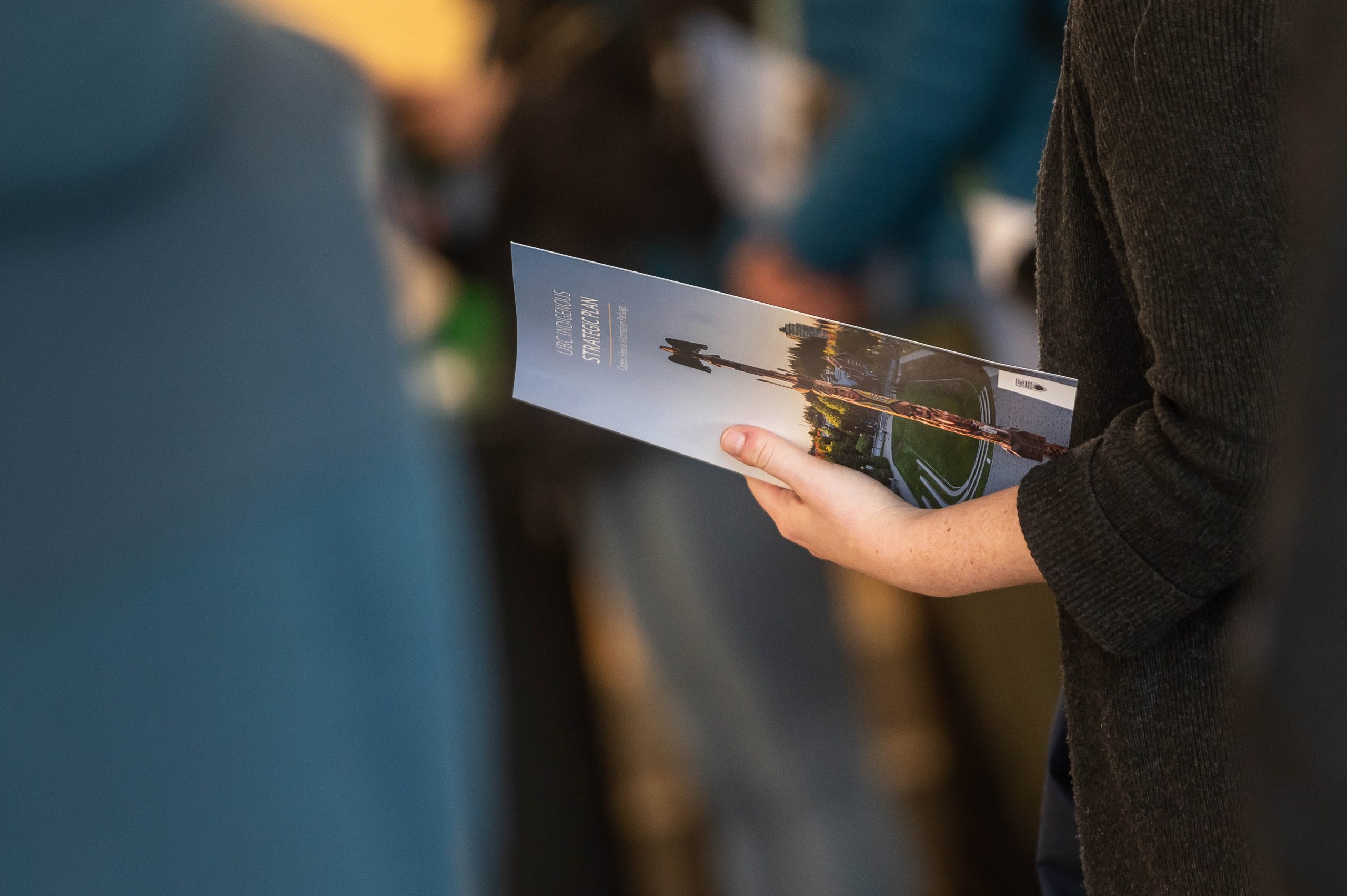Leading the Advancement of Indigenous Peoples’ Human Rights
UBC’s Indigenous Strategic Plan (ISP) outlines eight goals and 43 actions the University is collectively taking to advance a vision of UBC as a leading university globally in the implementation of Indigenous Peoples’ human rights.

Indigenous Citizenship Declaration Policy – Engagement Sessions:
UBC launches engagement sessions with Indigenous students, faculty, and staff to develop an Indigenous Citizenship Declaration Policy.
Meaningful Reconciliation in Action
Our engagement process was designed to be somewhat analogous to the story of the raising of the Reconciliation Pole, installed here at UBC in April 2017.
With the launch of the ISP on September 14, 2020, UBC became the first university in North America to commit to implementing the United Nations Declaration on the Rights of Indigenous Peoples (UNDRIP), thus taking a human rights-based approach to its Indigenous strategic framework.
Read More
The Reconciliation Pole took a team of experienced carvers to complete over a number of months, led by Haida artist James Hart, with a small amount of carving by some members of the university community as a way of sharing ownership of the pole’s message of reconciliation. The pole depicts First Nations, Inuit and Métis peoples’ genocidal experience with Canada’s residential school system and how, despite this past, Indigenous peoples are celebrating their culture and implementing their rights.
With the consent of Musqueam, the pole was raised through the efforts of hundreds of people, both Indigenous and non-Indigenous, young and old, who together pulled on a handful of ropes in the same direction. This image alone is a powerful symbol of unity and a demonstration of what can be achieved when we work towards a common set of goals. The implementation of this Plan, like the pole raising, will take a major collective effort, with all leadership, Faculties and units pulling in the same direction from their specific locations.
Three key themes were centered in the ISP Engagement Process:
Research: How UBC engages in and conducts research that impacts Indigenous peoples and promotes research initiatives that promote Indigenous inclusion and the values of respect, relationship, responsibility and reverence.
Learning and Teaching: The structures, systems and policies that promote a safe and inclusive learning environment for Indigenous students and support them to achieve success, however they choose to define it. It also relates to all aspects of the programs and curriculum that support and promote Indigenous worldviews, knowledge systems, languages, culture, systems of law and governance, as well as the expertise of the instructors that develop and deliver curriculum throughout UBC.
Service: Support systems and processes in place for prospective Indigenous students, current Indigenous students, Indigenous faculty and staff as well as initiatives that promote meaningful engagement with our Indigenous community partners locally, nationally and internationally.

Funding Streams
Indigenous Strategic Initiatives Fund
The Indigenous Strategic Initiatives (ISI) Fund supported implementation of the Indigenous Strategic Plan. Funds were available to support projects led by faculty, staff and students that advance the UBC Indigenous Strategic Plan implementation across both the Vancouver and Okanagan campuses.

Honouring Place
The UBC Vancouver-Point Grey campus is located on the traditional, ancestral and unceded territories of the xʷməθkʷəy̓ əm (Musqueam) people. The UBC Okanagan campus is located on the traditional, ancestral and unceded territory of the Syilx Okanagan Nation.
The xʷməθkʷəy̓ əm and Syilx peoples have been stewards and caretakers of these territories since time immemorial. To acknowledge and support this important role, UBC strives toward building meaningful, reciprocal and mutually beneficial partnerships with the xʷməθkʷəy̓ əm and the Syilx peoples.
Foundations
The Indigenous Strategic Plan (ISP) represents a university-wide response to the United Nations Declaration on the Rights of Indigenous Peoples and the National Inquiry into Missing and Murdered Indigenous Women and Girls’ 231 Calls for Justice. It also represents the UBC Vancouver campus’ response to the Truth and Reconciliation Commission’s 94 Calls to Action. These documents provide guiding and foundational knowledge to the creation and implementation of the ISP.
Vision
UBC as a leading university globally in implementation of Indigenous Peoples’ human rights.
Mission
To guide UBC’s engagement with Indigenous peoples and its commitment to reconciliation, as articulated and called for by the Truth and Reconciliation Commission of Canada.
Values
The values of excellence, integrity, respect and accountability were emphasized through the creation of the ISP and will continue to guide the work of the ISP committees as we support the Action Plan’s implementation. The ISP is also committed to upholding the value of academic freedom—defined as “a scholar’s freedom to express ideas through respectful discourse and the pursuit of open discussion, without risk of censure”—in the context of Indigenous human rights.
Impact Stories
Stories of progress and impact, including successes,
reflections and lessons learned as UBC implements the ISP
We honour, celebrate and thank the xʷməθkʷəy̓ əm (Musqueam) and Syilx Okanagan peoples on whose territories the main campuses of the University of British Columbia have the privilege to be situated.


